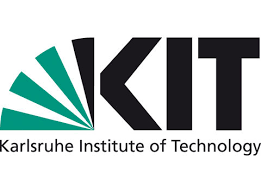Karlsruhe Institute of Technology: Intelligent battery cell production
In the future, battery cells in Germany must be economically producible in small, medium and large series for a wide variety of applications and markets in order to meet current requirements. It is also important to develop innovative approaches to increase productivity and at the same time reduce production costs. This is where the competence cluster for intelligent battery cell production (InZePro), funded by the Federal Ministry of Education and Research (BMBF) with a total of around 44 million euros, comes in.
The research projects involved in InZePro have produced their first results. The focus was on agile system technology, on the digitization of individual production steps and the entire production system, as well as on virtual production systems and AI in production.
Guide to digitization and Industry 4.0
Tool boxes on the subjects of machine and system technology, process technology, planning, control and logistics as well as quality management were created to help digitize battery cell production. These should evaluate and further develop the already existing technical and organizational approaches of Industry 4.0 in battery cell production. The aim is to accelerate the systematic implementation of digitization and Industry 4.0 in battery cell production: In the future, companies should increase the competitiveness of their battery cell production quickly and efficiently. At the end of the project, the results are to be summarized in a guide and published.
Digital twin and machine learning
It was also shown, for example, that a digital twin can be used to examine and evaluate various future scenarios and their effects on a flexible battery production system. The digital twin can be understood as a kind of operational simulation for planning and control.
A tracking and tracing concept with different electrode marking technologies was also developed. It helps ensure that the battery components can be traced across the entire process chain. In addition, approaches to data structuring and machine learning were developed in various projects. For example, systems are equipped in such a way that they recognize processes and patterns in the production process and can react independently to errors.
quality control
The results are assessed by a management group that accompanies the projects and ensures close cooperation between research and industry. “Through active cooperation in the projects, we cover all process steps in lithium-ion battery cell production. In this way, we want to ensure that manufacturing companies, for example in the automotive industry, can increase their productivity even with a fluctuating order situation and high product variance, while reducing costs and increasing product quality, ”says Professor Jürgen Fleischer, head of the wbk Institute for Production Technology at KIT and chairman of the InZePro cluster.
Around 200 scientists from 28 German research institutions work in the InZePro competence cluster. Four institutes of the KIT, four institutes of the TU Braunschweig, three institutes of the RWTH Aachen, two institutes of the TU Munich, the University of Bayreuth, the University of Landshut, the TH Aschaffenburg, the Helmholtz Institute Ulm, the Center for Solar Energy and Hydrogen are involved -Research Baden Württemberg and ten institutes of the Fraunhofer Society. The cluster will be funded until 2023.

